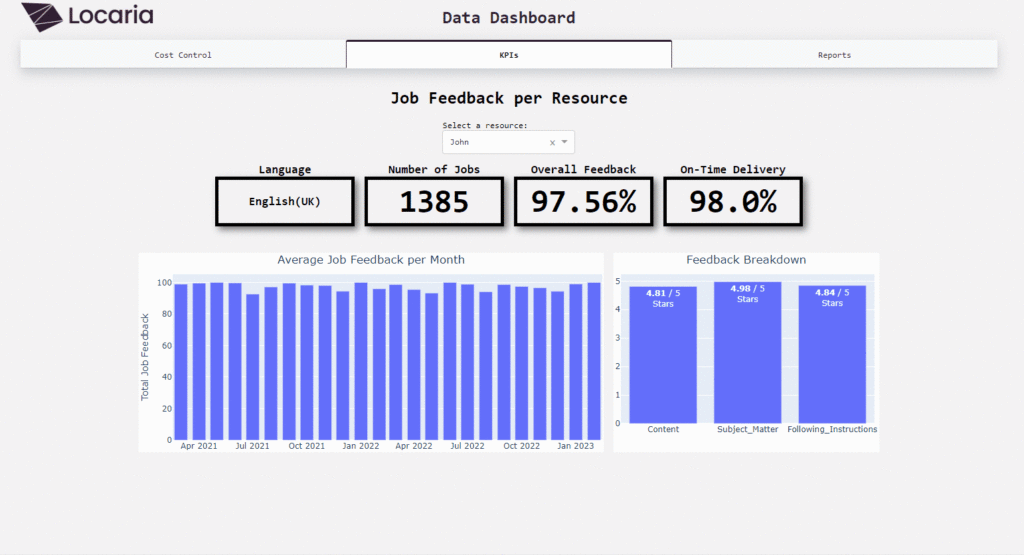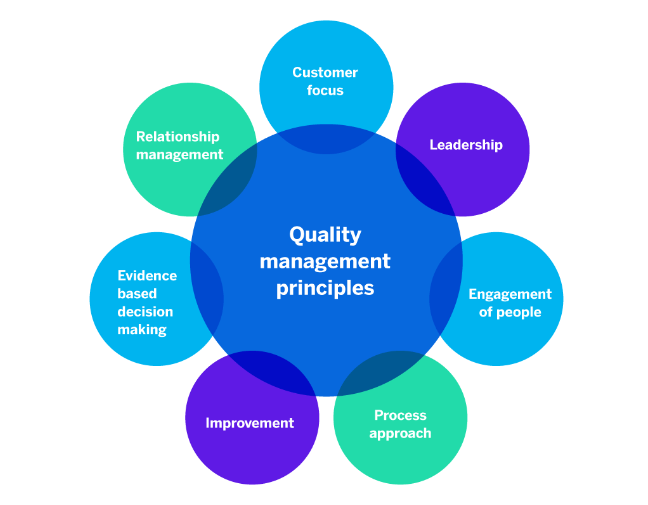Boosting Performance: Effective Quality Management for External Supplier Networks
As the old adage goes, “the greater the obstacle, the more glory in overcoming it”. And within the localisation industry and creative space, the last 10 years have presented many challenges that we have faced and learned to overcome – whether it’s the arrival of new technologies such as Machine Translation and Creative Automation, or industry pressures such as recession. On many occasions, we have had to embrace the changing landscape by integrating and future-proofing our processes to make them more efficient in the long run. All operational challenges are, however, multiplied when collaborating with hundreds of partners worldwide.
Further weighing in on this factor is company growth and the more global a business becomes, the more stringent it has to be in organising its processes. In the example of Locaria, we implement company-wide standard operating procedures to help guide the collaboration with external partners. This ensures that all assessments are compliant and also safeguards a consistent level of quality. Given that our supplier databases can grow at speed, especially throughout periods of high growth and company upturn, we have had to make sure that proven strategies are followed to maintain exacting standards.
Overall Ratings & Onboarding
Locaria has a database of more than 1,200 external partners globally. Although prior to onboarding suppliers, there was an extensive amount of work to establish a clear set of quality and KPI metrics which evaluate the talent that we collaborate with.
Whenever overall project volume increases and there is a growing demand for talent, it is important for businesses to be able to make agile decisions, and this is where owning relevant and up-to-date ‘quality’ data is crucial. Each field of data, for example ‘expertise’, ‘service type’ and ‘channel training’, contributes to a robust classification system which assists our Project Managers to gauge what is required for specific projects. Combining this with in-house software and dashboard reporting which highlights key stats and ‘evolution-over-time’ for a full suite of metrics such as the ‘overall feedback rating’, ‘on-time delivery’ and ‘responsiveness’, also encourage more effective and informed decisions.
Another advantage of gathering a set amount of holistic feedback is that this allows us to gain improved insights and a better understanding of our collaborator’s performance and project suitability, while clearly highlighting strengths, weaknesses, experience and vertical familiarity. This knowledge can prove particularly useful in the case of highlighting weaknesses and taking measures to improve on them. In effect, this process helps to create well-adapted on-boarding schemes and specific training sessions to bridge any knowledge gaps, as well as providing support for new high-potential recruits that need extra guidance to be in-line with internal policies.

Monitoring Quality Metrics
Overall quality can be measured and analysed over a set period of time, in granular detail or as a single metric that regroups all areas that are deemed ‘important quality indicators’. A healthy quality management process should demonstrate an upward curve representing good practices, process management and tangible improvement. The advantages of a single metric is that it allows management to gain a general understanding and overview. However, tapping into the more granular details is where Vendor Management teams can make the most progress and fine-tune the areas which scored lower.
For accuracy, all feedback data should be collected from each project routinely, without exception, and regular review processes should be set up at a frequency that matches the volume of projects – whether it’s weekly, biweekly or monthly. More frequent reviews allow Vendor Management teams to effectively pinpoint any anomalies and iron these out quickly before they are escalated.
What’s more, when it comes to onboarding new external suppliers, close-review and monitoring is even more crucial. Collecting feedback from the first projects and observing progress over time allows the supervisor to gauge whether the given feedback is proving useful and whether guidelines have been respected. Another important metric to measure is the average time that it takes for a starter to become fully operational and fluent in the set quality standards. If procedures are too lengthy or complex to follow, Vendor Management teams are responsible for ensuring that documents and systems are optimised to make workflows more efficient and accessible.
Identifying & Resolving Weaknesses
Vendor Management teams break results down and analyse them on a granular level. Through close inspection, there may be varying quality outputs from different departments that are noticeable and, to a certain degree, this is normal. However, this could also be indicative of a quality-assurance anomaly such as a less effective briefing process, lack of knowledge, resources etc. Identifying the root cause for potential weaknesses is the first step to improving the process, and acknowledging shortcomings is the only way to tackle them. Our team is able to addresses weak points in several ways:
1) Creating specific training sessions which are focussed on areas for improvement
2) Elaborating more detailed SOPs for projects where quality issues are more common
3) Identifying more experienced talent to mitigate the impact of these issues in our overall quality
On the premise of quality-assurance processes, we experience more positive outcomes and witness improved job-assignment accuracy, time-saving and overall ratings.

Improving The Recruitment Process
Using all the gathered information, experience and the data, we are able to take these learnings and implement them into our recruitment process; actively recruiting talent that shows strength in the areas which are needed. This can occasionally prove to be a challenge when coordinating an extensive database, but this is also where all of the collected data becomes most valuable. Project Managers can take advantage of job category filters and quality-reporting statistics to actively foster new relationships with newer onboards and high-potential collaborators.
Newly recruited Project Managers can often feel slightly overwhelmed when they begin their new role, and arriving in a new environment with unfamiliar talent and an information overload can be difficult to manage. At first, they may feel more comfortable asking colleagues for advice, while also carrying out research in the CRM to find out which talent usually handles certain projects, language combinations, verticals etc. However, improving data management streamlines the whole process and improves transparency across the board. This also means that high-level data overviews are available instantly, and easy visual representations at a glance can boost Project Manager autonomy from day one.
The Importance of Transparency
Sharing ‘quality’ feedback with our partners gives us a differentiating factor of transparency, in comparison to other companies that keep this information ‘in the dark’.
In addition to scheduling training sessions, open feedback is a way of investing time and strengthening bonds to help guide partners in the future. This also helps them to decide on the areas that they would like to develop in future, and how they can take further care of their clients. This is also part of our Vendor Branding, along with other initiatives that contribute to creating a community in which every party is well aware of the path that Locaria wants to follow and the objectives it involves.
We also consider that creating an environment for open feedback is a key time-saving measure for onboarding processes; it is more effective to invest in current collaborators and to build on their skills than outsourcing new talent. This allows for higher levels of professional growth, and the talent pool gradually becomes more proficient across several areas of the business as well as the processes. An added bonus is that customer experience increases simultaneously, bringing with it a positive impact on brand reputation.
At Locaria, we take our quality assessments seriously and are proud of our quality network and data that we have worked tirelessly to improve. Whether it is for future recruitment, marketing purposes or business development, we consider our data pool to be among one of our most useful assets.
Author: Begoña González Hermosilla



